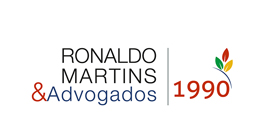USE OF SOCIAL NAME
A social name is the name that an individual has adopted and wishes to be called by.
The use of the social name has legal protection, so disrespecting this right can be considered a crime, subject to penalty. However, this requires the victim to report the act.
Which laws guarantee the use of social names?
The first law to defend this right, albeit indirectly, is the 1988 Federal Constitution. This is because this legislation brings the concept of human dignity and respect for differences.
And it should be noted that as of 2009, the states of the federation began to establish regulations.
Which federal law guarantees this right?
At the federal level, however, the changes took a little longer to happen. The first administrative rule establishing the rights of transsexuals and transvestites is No. 233 of May 18, 2010, which provides that:
Public employees, within the scope of the direct, autarchic and foundational Federal Government, are guaranteed the use of the social name adopted by transvestites and transsexuals.
Thus, the “social name” was instituted nationwide for government employees. The following federal entities also have legislation to guarantee this right: Piauí, São Paulo, Pernambuco, Rio de Janeiro and Mato Grosso do Sul.
How to change the social name?
It is the employer’s duty to ensure that trans people, transvestites and transsexuals can use their social names in their employment records, systems and documents, to provide services on their behalf and in the workplace.
This was the understanding of Rhiane Zeferino Goulart, substitute judge of the 3rd Labor Court of São Paulo, East Zone Forum, when she ordered a telemarketing company to pay non-pecuniary damage to a transgender employee for not authorizing him to use his social name in the corporate systems.
According to the case records, his colleagues at the company called the professional by his social name, but when he made calls, he was obliged to use the name of his civil registration, since it appeared on his personal badge, as well as on the app he used to make calls. The employee said he was uncomfortable with the situation and would even cover up the female identification that appeared on the equipment.
In her decision, the judge pointed out that the timecards attached to the case records by the company registered the employee’s previous name, confirming that it had remained in the system. The judge pointed out that “everyone has the right to freedom of opinion and expression, which includes the expression of identity or personal autonomy through the choice of name”.
In light of this, the judge ordered the company to pay R$10,000 in non-pecuniary damage, as she considered that the unlawful act was potentially offensive to the employee’s honor.
The Public Prosecution Service issued note 02/2020 with guidelines for companies to really respect and promote diversity in corporations. Among them is the adoption of and respect for social names:
SOCIAL NAME: ensure that all transgender people, transvestites and transsexuals, as well as all those whose civil identification does not necessarily reflect their gender identity, use their social name within the company, for example: registration of data and information for social use, internal communications for social use, e-mail address, functional identification for internal use of the institution (badge), list of extensions of the institution, user name in computer systems, registration in events promoted by the institution and issuance of the respective certificates.
The Labor Prosecutor’s Office also provided other specifications and guidelines to help companies apply the precepts of diversity and social inclusion, which are just as important as the adoption of the social type name:
USE OF RESTROOMS: guarantee the use of restrooms, changing rooms and other spaces segregated by gender, if any, according to the gender identity of each person, and the creation of spaces for the exclusive use of LGBTIQ+ people is prohibited.
VIOLENCE AND HARASSMENT: adopt measures to suppress the practice of violence against the LGBTIQ+ population (LGBTphobia, transphobia, bullying, sexual harassment, cyberbullying) and prevent all employees, outsourced workers, interns or customers from being exposed directly or indirectly to situations characterizing bullying, as well as discrimination on the grounds of sexual orientation or gender identity.
It is essential that the employee has changed the documents in order to have their registration with the company altered, at which point they will have to rectify their Labor Card, employment contract, registration form, badge, timecards, pay slips, health insurance card and benefits such as transport, food and meal vouchers.
The employee’s social name must be included in the register of data for social use, internal company communications, e-mail, list of extensions, systems, digital platform, internal events and certificates.
In addition, the company must complete the Employee Data Rectification (RDT). The RDT is a form filled in by the employer and sent to Caixa Econômica Federal.
The rectification form with the new information must be submitted to Caixa in order to change the registration data relating to the FGTS (Guarantee Fund for Length of Service), Social Security and FGTS account.
USE OF THE RESTROOM
What should the company do to ensure adequate access to the restroom?
Since 2015, the Extraordinary Appeal No. 845,779/SC has been pending judgment in the Federal Supreme Court (STF), which discusses whether or not there is an infringement on the dignity of trans people if they are prevented from using the restroom that matches their gender identity. Justices Luís Roberto Barroso and Edson Fachin have already voted in favor of the appeal, and the judgment has been suspended since November 2015 due to a request by Justice Luiz Fux.
However, the fact that this judgment has not been concluded does not prevent trans people from using the restroom corresponding to their gender identity in the workplace (or in any other public place). This is because, according to the Appellate Decision published on 06/10/2020, the Federal Supreme Court decided, in the case records of the Direct Action of Unconstitutionality by Omission (ADO) No. 26, that until the National Congress draws up a law aimed at implementing the criminalization mandates defined in sections XLI and XLII of article 5 of the Constitution (which impose the punishment of any discrimination that undermines fundamental rights and freedoms), “homophobic and transphobic conduct, whether real or alleged, which involves hateful aversion to someone’s sexual orientation or gender identity, because they translate expressions of racism, understood in its social dimension, are adjusted, by identity of reason and through typical adequacy, to the primary precepts of incrimination defined in Law No. 7,716, of January 8, 1989.”
In this regard, the Federal Supreme Court has ruled that, given the failure of Congress to create a law punishing acts of discrimination against the LGBTQIA+ population, homophobic conduct will fall under Law 7,718/1989, which regulates acts classified as a crime of racism.
In turn, article 4, §1, item III, of Law No. 7,718/1989 provides for imprisonment of two to five years for anyone who, on grounds of discrimination, “provides an employee with different treatment in the workplace”. Thus, if an employer prevents a trans employee from using the restroom according to their gender identity, they will be promoting different treatment in the workplace, which could constitute a crime of transphobia, under the terms of the aforementioned article.
It should also be noted that even before the Federal Supreme Court’s decision, the Labor Courts had already ruled to punish employers who prevented their employees from accessing the restrooms corresponding to the gender with which the trans person identifies.
It is important to mention that the Regional Courts have ordered companies that make it difficult or prevent employees from using the restroom that best represents their adopted gender to pay non-pecuniary damage. Note that in the reasoning behind these decisions, the judges have considered preventing the use of the chosen restroom to be a discriminatory act and that the impediment represents an infringement on the dignity of the human person.
On the other hand, by analogy, this same logic could be applied to non-binary people, i.e. trans people who don’t identify with either gender, and it would be up to them to decide which restrooms they feel most comfortable using, while it would be up to employers to ensure safety and access to the restroom for these people.
There is no discussion in case law as to whether employers are obliged to set up a specific restroom for non-binary people. However, regardless of whether or not such a restroom is built, it is certain that employers must always ensure that workers have access to the restroom that best suits their gender identity.
What emerges, therefore, is that all workers, regardless of their gender identity, must be treated with respect by employers, and discriminatory conduct is unacceptable.
As for transgender workers, the lack of legislation guaranteeing them basic rights to dignified treatment does not prevent them from using the restrooms corresponding to their gender identity in the workplace.
FINAL CONSIDERATIONS
All changes can be made at the employee’s request, both for the use of their social name and for the use of the restroom.
We also recommend that, within the company, training is carried out with the HR manager and supervisors so that all employees are instructed to address their colleagues using the social name they have adopted.
I would like to point out that some companies have adopted a field within the hiring documents in which the social name is included. If they don’t have this option, it will be necessary to request the employee’s ID and CPF with the name change.




